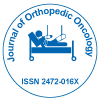当社グループは 3,000 以上の世界的なカンファレンスシリーズ 米国、ヨーロッパ、世界中で毎年イベントが開催されます。 1,000 のより科学的な学会からの支援を受けたアジア および 700 以上の オープン アクセスを発行ジャーナルには 50,000 人以上の著名人が掲載されており、科学者が編集委員として名高い
。オープンアクセスジャーナルはより多くの読者と引用を獲得
700 ジャーナル と 15,000,000 人の読者 各ジャーナルは 25,000 人以上の読者を獲得
インデックス付き
- Google スカラー
- レフシーク
- ハムダード大学
- エブスコ アリゾナ州
- OCLC-WorldCat
- パブロン
- ユーロパブ
- ICMJE
役立つリンク
オープンアクセスジャーナル
このページをシェアする
抽象的な
Autophagy as a Possible Target for Cancer Therapy
Abraham NM, Kirubel MM and Abraham DA
Autophagy is an evolutionarily conserved catabolic process that targets cellular organelles and cytoplasmic constituents to the lysosomes for degradation. According to the type of cargo delivery, there are three main types of autophagy systems in mammals: macroautophagy, microautophagy, and chaperone-mediated autophagy. Macroautophagy, often simply (and hereafter) referred to as autophagy, is the best studied autophagic process and focus of this review. Autophagy has been recognized to be a pro-survival mechanism at times of cellular stress including starvation. Besides, increasing evidence indicated the importance of autophagy in in the pathogenesis of several diseases including cancer. But, its role in cancer is more complex and still controversial; it appears to be tumor suppressive during tumorigenesis, but contributes to tumor cell survival during cancer progression. Besides, autophagic capacity was shown to significantly affect responses of cancer cells to anticancer agents and radiation. Even though there is still a gap about how autophagy is regulated in cancer, it appears to provide a promising target for cancer treatment. This review aimed at examining the multiple roles of autophagy as a novel target for cancer therapy..

 English
English  Spanish
Spanish  Chinese
Chinese  Russian
Russian  German
German  French
French  Portuguese
Portuguese  Hindi
Hindi